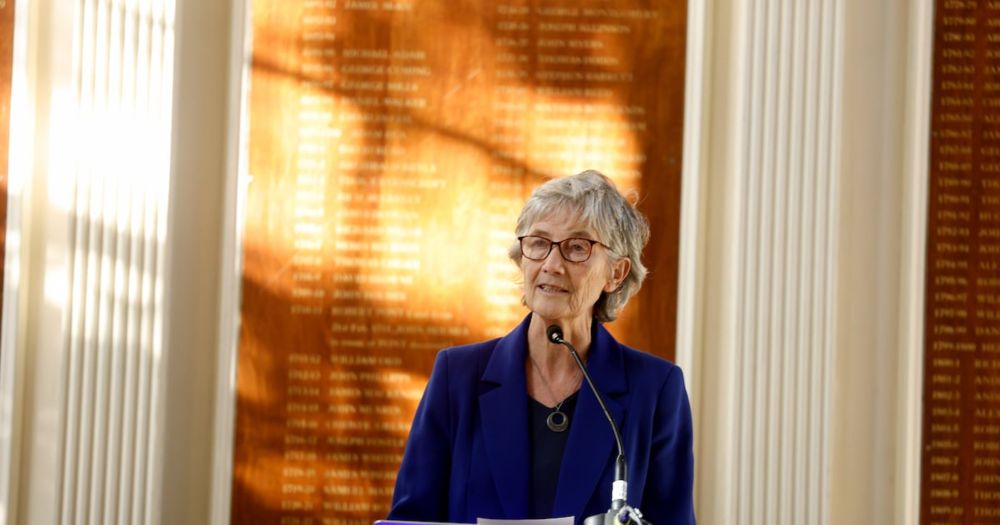Blog: https://climate-change-and-ireland.ghost.io/
–Adjunct prof. Dublin City University
ORCID: 0000-0002-7995-6712;
–eNGO research & An Taisce member;
MSc. Sus Dev & BSc(Hon) Geology
30 yrs pro carpentry.
🚲 🏊
They deleted the line in which I describe Donald Trump as “the most openly corrupt president in American history.” /1
They deleted the line in which I describe Donald Trump as “the most openly corrupt president in American history.” /1
Now Gmail search does not work.
#Enshittification in action.
(Are there any non-AI email options out there?)
Now Gmail search does not work.
#Enshittification in action.
(Are there any non-AI email options out there?)
#Iran 🇮🇷


www.irishtimes.com/politics/202...

www.irishtimes.com/politics/202...

I see this as social engineering at scale, attacking common blind spots in people's psyches in order to consolidate power.
The risk is colossal.
I see this as social engineering at scale, attacking common blind spots in people's psyches in order to consolidate power.
The risk is colossal.
The education system that existed in Gaza, largely run by UNRWA, must be fully re-established.

The education system that existed in Gaza, largely run by UNRWA, must be fully re-established.
CCS plays a role, but it is strictly secondary, contributing a median of just 15–25%.
Technological neutrality is a political concept, not a scientific one.
2/3
CCS plays a role, but it is strictly secondary, contributing a median of just 15–25%.
Technological neutrality is a political concept, not a scientific one.
2/3
How long more will the people of this country put up with our rivers being destroyed for private profit?
share.google/xzTWNuALN6PE...

How long more will the people of this country put up with our rivers being destroyed for private profit?
share.google/xzTWNuALN6PE...
'It is too late for even a small chance of avoiding 1.5ºC without highly speculative tech, getting lucky with climate sensitivity and immediate global action'
www.antaisce.org/news/report-...
'It is too late for even a small chance of avoiding 1.5ºC without highly speculative tech, getting lucky with climate sensitivity and immediate global action'
www.antaisce.org/news/report-...
#climatecrisis
www.theguardian.com/world/live/2...

#climatecrisis
www.theguardian.com/world/live/2...
I spoke about the transformative potential of sustainable energy.
My speaking notes are here: hannahdaly.ie/2025-11-19-a...
This afternoon, President Catherine Connolly spoke at an event hosted by An Taisce: ‘Snapshots on climate change and its impacts on our welfare’




I spoke about the transformative potential of sustainable energy.
My speaking notes are here: hannahdaly.ie/2025-11-19-a...
Topics include petrol leaf blowers, Iceland’s AMOC alert, sail-powered cargo ships - and more.
Topics include petrol leaf blowers, Iceland’s AMOC alert, sail-powered cargo ships - and more.
www.irishtimes.com/environment/...

www.irishtimes.com/environment/...
As Prof. Richard Alley explains, worst-case is more like >1.0m. So using 0.5m is poor engineering.

As Prof. Richard Alley explains, worst-case is more like >1.0m. So using 0.5m is poor engineering.
"IPCC estimates are surely NOT alarmist, and very easily could be overly optimistic"
- Prof. Richard Alley, @pennstateuniv.bsky.social
#ClimateEmergency

"IPCC estimates are surely NOT alarmist, and very easily could be overly optimistic"
- Prof. Richard Alley, @pennstateuniv.bsky.social
#ClimateEmergency

This afternoon, President Catherine Connolly spoke at an event hosted by An Taisce: ‘Snapshots on climate change and its impacts on our welfare’




Yet still today, many electricity bills include taxes and levies that are far higher than those on gas.
Moving taxes off the electricity bill is a key tool governments have to make heat pumps attractive!
Yet still today, many electricity bills include taxes and levies that are far higher than those on gas.
Moving taxes off the electricity bill is a key tool governments have to make heat pumps attractive!



